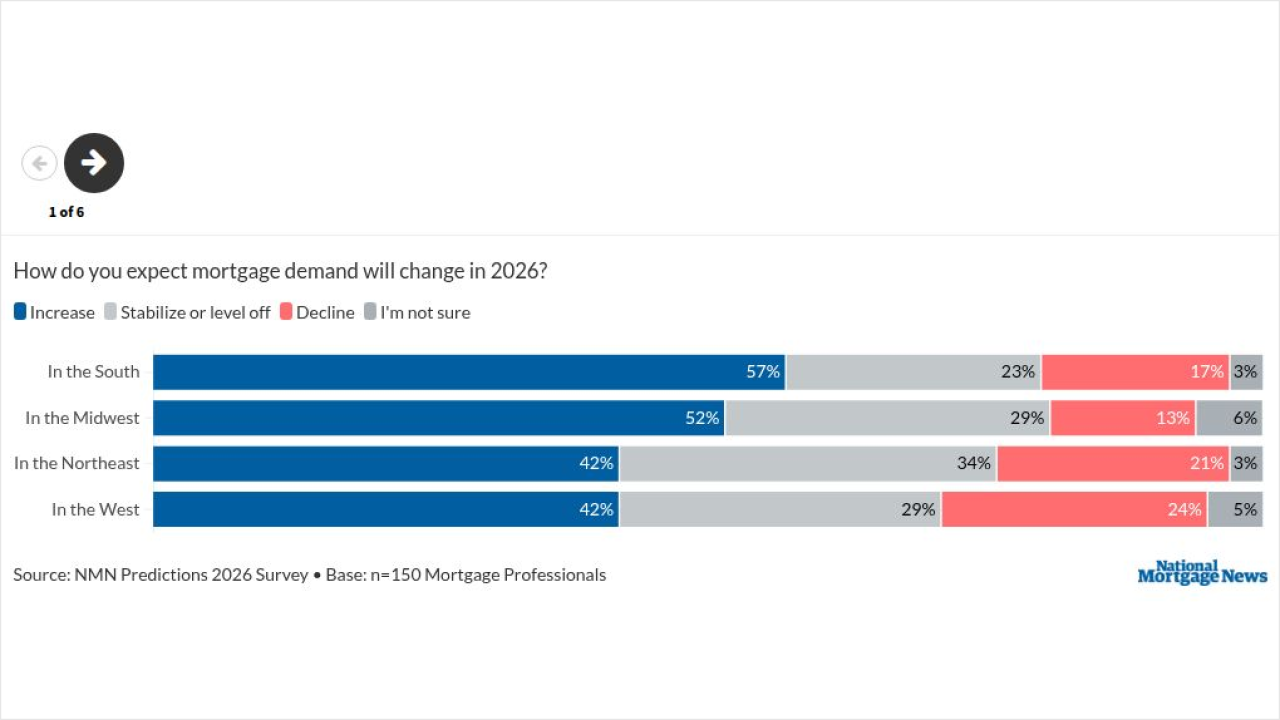The Structured Finance Association has called on Treasury Secretary Steven Mnuchin to refrain from immediately releasing the government-sponsored enterprises from conservatorship in response to a
“We call upon Treasury to take responsible steps to avoid the potentially destructive effects of releasing the GSEs prematurely,” CEO Michael Bright said in a letter sent to Mnuchin from the group on Monday. Bright previously served as an executive at government mortgage bond insurer Ginnie Mae from July 2017 to January 2019.
The Federal Housing Finance Agency has been consistently intent on a conservatorship exit under the Trump administration and recently completed a

“If progress is not made before the change in administration, it is unclear if the Democrats would be eager to change the status quo of a system that is widely regarded as ‘working’ when there are perhaps more pressing issues in other areas of government oversight,” Keefe, Bruyette & Woods analyst Bose George said in a research note on Monday.
The letter from the SFA, which represents 370 institutions active in the capital markets, highlights a key barrier to a quick conservatorship release: its potential impact on the huge uniform mortgage-backed securities market, which the GSEs guarantee and the U.S. housing financing market relies on for liquidity.
“We hope the Treasury Department will ensure that the transition to the next phase of housing finance is a stable and healthy one, not one that whipsaws investors back and forth, is tethered to politics of the moment, and is difficult to explain to asset managers with strong fiduciary responsibilities to the pension plans and 401k investments under their responsibility,” Bright said.
The SFA said in its letter that it does support an eventual release from conservatorship and indicated moves like the capital rule have helped stabilize their financials. However, its members would like to see several other issues addressed first.
Chief among these is a clear definition of “the level and form of government support” that would be available to the GSEs post-conservatorship. In the early days of the pandemic, private-label residential MBS markets failed to recover as quickly as the GSEs’ MBS did because the Federal Reserve supported the latter market but not the former.
Other trade associations also have suggested the government slow down — not only on exiting conservatorship but also on its move to implement the capital plan.
Mortgage Bankers Association President and CEO Robert Broeksmit recently said in a statement that while some aspects of the final plan — such as slightly more modest treatment of credit-risk transfers vehicles the GSEs use — represent improvements over an earlier version, more study of its implications should be done before implementation.
“We … remain concerned that the high leverage ratio requirements will be binding more frequently than is appropriate and will further contribute to negative impacts on consumers,” he said. “Given that this rule will affect both the cost and availability of mortgage credit for borrowers, we believe FHFA should conduct a quantitative impact study to determine the full impact.”




